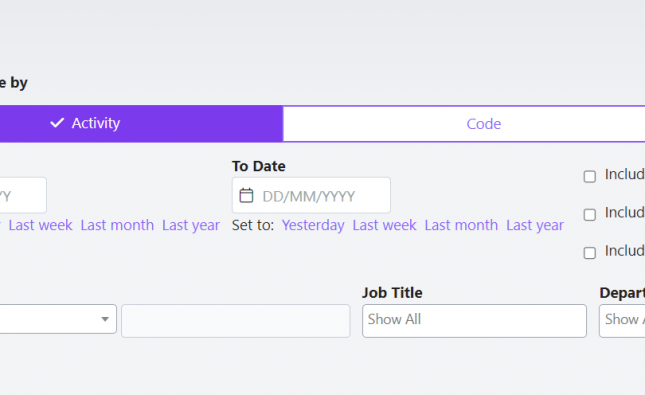It should come as no surprise that alcohol and drug misuse by employees spells bad news all round. As well as the physical risk to health (including damaging the liver and heart and increasing the risk of cancer), substance abuse at work can cause other business-related issues, including:
- Reduced productivity, efficiency, and concentration
- Increased workplace injuries, accidents, and even deaths
- Absenteeism
- Declining mental health
- Increase in violence and aggression
- Theft
- Poor decision making
- Lower morale of co-workers
- High turnover
- Increased re-training
Under The Health and Safety At Work Act 1974, all employers have a legal duty of care to protect employees’ health, safety and welfare. Knowing the signs of drug and alcohol misuse, and how to spot them in the workplace, will help managers and team leaders mitigate health and safety risks and support their employees’ physical and mental wellbeing.
5 signs of drug and/or alcohol misuse and abuse at work:
1. Sudden changes in behaviour and appearance
Train managers to get to know and understand their team-members. Not only is this management style great for keeping open communication and building trust, but it will make it easier to spot unusual behaviours that may be a red flag for alcohol or drug misuse. Has your employee suddenly become angry or unpredictable? Do they overreact to little things? Or have they become more confrontational? If it’s unjustified and uncharacteristic, it’s time to take note of the person’s symptoms and see what’s troubling them. It could be family stress, illness or workplace substance abuse.
Additionally, look out for changes in personal hygiene or professional appearance – a decline in this area is often a sign that something’s wrong, including drug or alcohol abuse.
2. Unexplained or frequent absences
Misusing alcohol and/or drugs (including prescription medications) can leave employees feeling hungover and poorly. Many substances can also make users feel too jittery to sleep, and this can lead to poor workplace performance and an increase in sick days. Whilst you should trust your employees to know and tell you when they’re legitimately too sick to work, watch out for higher-than usual absenteeism spread across many months; this behavior reduces productivity and unfairly puts more strain on other people in the team.
3. Declining productivity/job performance
It should come as no surprise that being drunk or using drugs at work makes it hard to focus. As a result, employees are less likely to be able to perform complex tasks and much more likely to make mistakes, leading to unsatisfactory work and chronic under-achievement. Employees deep into substance abuse may only be able to concentrate on getting more of said substance, pushing important work commitments aside, and missing deadlines and targets.
4. Workplace accidents
Working under the influence rapidly increases the risk of workplace accidents. For office-based workers, this may include an increase in breakages or slips and trips. However, for employees operating heavy machinery, or using factory/manufacturing tools (where accidents are already a high-risk), or for persons who drive on the job, abusing substances at work can have devastating effects, including death. It only takes a momentary lapse in judgement or slower-than-usual reaction time for employees struggling with drug or alcohol misuse to seriously injure themselves or those around them. Be on the look-out for a sudden increase in workplace accidents and be sure to record them.
Additionally, keep an eye on your colleague’s physical appearance. If they’re showing up for work with unexplained cuts, bruises, scrapes, or needle marks, it may be time to seek help.
5. Conduct issues
There are a number of performance and conduct issues that may indicate your employee is struggling with substance abuse. As well as absenteeism (detailed above), managers should look out for signs including chronic lateness, mood swings, and inappropriate behaviours/attitude, theft, violence and aggression, a quarrelsome attitude with coworkers, managers, and customers, taking long breaks and/or slacking off, and increasing signs of paranoia.
Handling suspected signs of drug/alcohol misuse at work
It’s important for managers to handle potential substance misuse or abuse at work tactfully. Openly accusing someone of using drugs or coming to work drunk or high can lead to gossip and heated confrontations (which will not help a substance abuser) – it could even end in a lawsuit if mishandled. If you suspect that drugs or alcohol are influencing your employee’s actions, start to document the specific behaviours causing suspicion and worry, share these with your HR manager (if you have one), and find a way to offer help compassionately, without being accusatory.
Find out more about how to support a colleague dealing with drug/alcohol misuse at work here.


